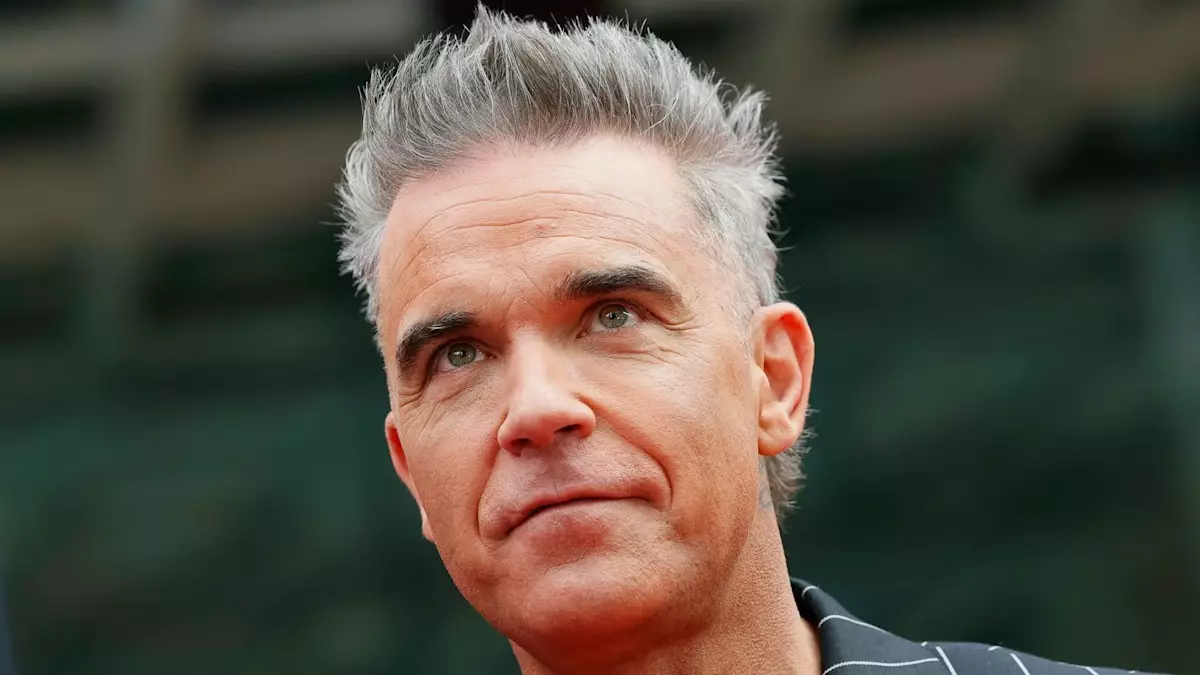In a recent Instagram post, Robbie Williams opened up about his experiences during his time with the iconic boy band Take That, addressing the complex emotions he endured that he has termed “boy band dysphoria.” His candid reflections come on the heels of claims made by his former manager, Nigel, in the documentary series “Boybands Forever,” which delves into the challenges faced by major boy bands, including Take That, Westlife, and Five. Williams’ message serves not only as a personal reckoning but also as an exploration of the broader issues that plague the boy band phenomenon and its members.
The term “boy band dysphoria” captures a unique struggle: the juxtaposition of fame with personal turmoil. In the world of pop music, especially within boy bands, members often grapple with intense public scrutiny while hiding personal battles. Robbie’s post sheds light on this phenomenon, revealing that this discord can lead to severe mental health issues and substance abuse problems. In his own case, he admitted to battling drug addiction, which point towards a deeper theme of self-doubt and identity crisis experienced by many pop stars during the height of their careers.
Robbie did not shy away from discussing his past drug addiction, boldly asserting in response to Nigel’s remarks: “My drug taking was never your fault.” This declaration suggests a profound understanding of personal responsibility and the impact of one’s environment on mental health. He illustrates how the pressures of fame can distort reality; individuals lose sight of their sense of self amidst the adrenaline and applause. By attributing his addiction to a response to the “warped world” surrounding him, Williams portrays a nuanced understanding of addiction—not merely as a failure of will but a tumultuous journey through the pressures of stardom.
His post also acknowledges the varied paths taken by his former bandmates. For instance, he mentions Gary Barlow’s struggle with an eating disorder, Mark Owen’s issues with alcoholism, and Jason Orange’s painful detachment from the group that left him unable to partake in the reunion processes. These reflections indicate that while some find pathways to recovery, others remain ensnared by the aftermath of their experiences, pointing to the legacy of trauma often left in the wake of fame.
Williams criticized the denial of lived experiences, labeling it as “gaslighting,” which highlights the often overlooked aspect of mental health discussions. By challenging the narrative set forth by his former manager, he highlighted how invalidating someone else’s emotional reality can affect their healing process. Such conversations are critical, particularly in a society that tends to glorify success without addressing the underlying struggles that accompany it. His metaphor of the gas cooker versus an air fryer elegantly underscores the need for transformation in the perspectives surrounding addiction and fame.
This public dialogue is timely; with societal shifts towards greater mental health awareness, Williams’ candidness invites dialogue around the untold stories of artists who often remain in the shadows of their public personas. His journey through addiction and mental health struggles is not an isolated case but a mirror reflecting the collective experience of many artists who emerge triumphantly or, tragically, remain ensnared by their demons.
Robbie’s journey did not stop at self-reflection. His 2023 Netflix documentary serves as an essential chapter in his narrative arc, revealing his decision to enter rehab in 2007—an act of courage that would ultimately lead to personal growth and reconciliation with his now-wife, Ayda Field. Their story illustrates the power of recovery not just for oneself but also in nurturing relationships harmed by addiction.
Now, as a proud father of four, Robbie Williams continues to navigate the delicate balance between public life and personal peace. His reflections on “boy band dysphoria” provide a lens through which we can better understand not only the celebrity experience but also the importance of empathy and dialogue in destigmatizing mental health struggles. In sharing his truth, Williams reshapes the narrative, showing that recovery and self-acceptance are a lifelong journey—one significantly illuminated by candor and connection.

